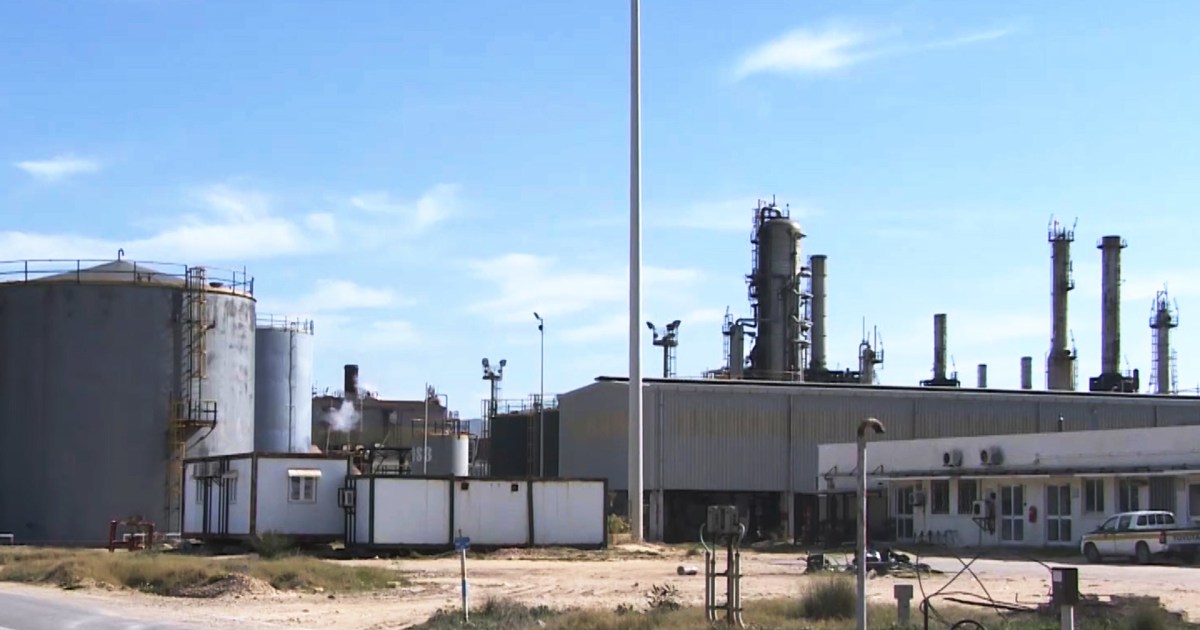It is very likely that the Beirut explosion in Brega, Ras Lanuf and Sidra will be repeated .. With these words, the head of the Libyan Oil Corporation, Mustafa Sanallah, sounded the alarm that threatens the oil ports in his country.
He pointed to an unprecedented accumulation of large quantities of rapidly exploding products, given that the militia of retired Major General Khalifa Haftar had closed oil ports since January 17 last.
In a video posted on the Oil Corporation website, Sanalla talked about storing 25,000 tons of ammonia gas (ammonia) in Marsa Brega (750 km east of Tripoli). He said that if these quantities were exposed to fire or intense heat, they would cause a huge explosion and a large cloud and kill those who inhale their poisonous dust.
He cited a previous leakage incident of parts per million of ammonia gas (a compound of ammonium nitrate, which led to the death of a number of workers (without further details), warning that the explosion of these large quantities would cause the death of local residents and workers, most of them Libyan, if these were not allowed to be exported. Shipments and the oil ports continued to be closed.
And the ignition of 2,750 tons of ammonium nitrate, in the port of the Lebanese capital Beirut, killed more than 170 people and injured more than 6 thousand others, not to mention billions in losses.
It survived 20 days
before the disaster, 20 days before the Beirut bombing, Libya nearly experienced a tragic disaster, but it miraculously escaped.
According to a statement by the Oil Corporation, clashes took place (on July 16) near the Buraiqa oil port between the Thunderbolt militia and the Petroleum Facilities Guard, affiliated with Haftar's forces, with medium weapons, 23-caliber anti-aircraft machine guns, and rocket-propelled grenades, hundreds of meters away. From oil tanks.
The corporation added that this "reflects the lack of responsibility and the lack of any military discipline of any kind on these armed groups, and the seriousness of their actions on the safety of the oil installations, their workers, and the population in the surrounding areas."
She stressed "the importance of evacuating mercenaries of the (Russian) Wagner Group, and Syrian mercenaries and Janjaweed from their facilities."
There are two ammonia gas tanks in Brega, according to Sanalla, containing 25,000 tons, more than nine times the amount of ammonium nitrate that was present in the Beirut port before the explosion, which makes Libya facing a greater threat.
At the end of 2014, the former Salvation Government in Tripoli launched the Al-Shorouq military operation to liberate oil ports from the control of the Petroleum Facilities Guard led by Ibrahim Jadhran, who was supported at the time by Haftar's militia.
The battles in the port of Sidra, the largest oil port in the country (600 km east of Tripoli), hit an oil tank with an RPG shell, which led to its explosion, burning a black fire in it, and then melting the structure of the tank.
The fire spread to other tanks, and within days the fire consumed seven tanks filled with oil out of a total of 19 tanks.
On a hot plate
and the oil crescent - which is located on the Gulf of Sirte, in the middle of the Libyan coast - is currently under a hot plate, where Haftar's forces insist on preventing the export of oil from it, and they mobilize Wagner and Janjaweed mercenaries in its ports and oil fields, and provide it with an arsenal of weapons, including what is believed to be a system S-300 anti-aircraft missiles, and an attempt to rehabilitate Ras Lanuf airport for military purposes.
And the militarization of the oil sector is paving the way to make the oil crescent area an imminent battlefield given its strategic importance, if it is not neutralized and removed from the arena of conflict, especially since hydrocarbons represent the almost only source of hard currency in the country.

